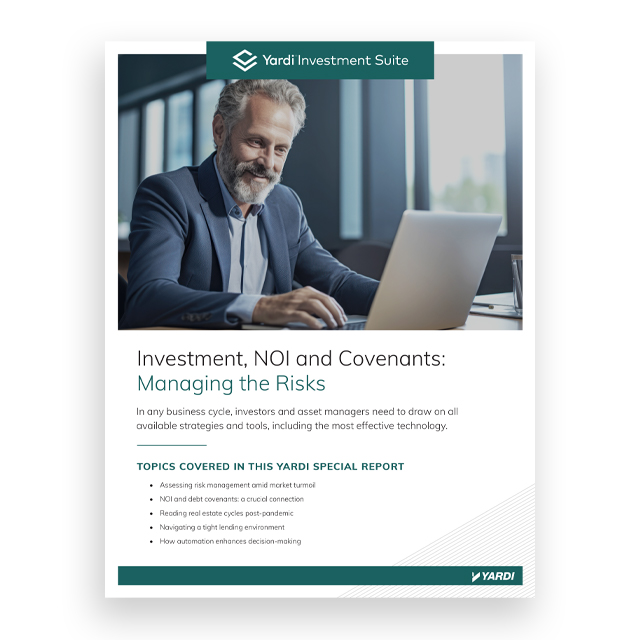What are the risks in the current real estate investment environment and how can investors protect themselves? A new Yardi Investment Suite special report gives investors and investment managers an inside look at challenges in the industry and how to use advanced technology to their benefit. Rising interest rates and a spate of high-profile bank failures have induced a cautious stance among real estate investors. While few experts predict a downturn as dire as that in 2008-09, capital sources are lending more cautiously. As a result, the report notes, investors are seeking ways to drive new efficiency into their operations. Using tech to mitigate risk Much of that efficiency comes from investment management technology platforms that automate investment accounting, performance measurement and investor reporting, along with loan abstracts, asset ratings, sales data, net operating income data, and valuation tracking and occupancy trends. By connecting information from the asset level through the investment structure to the investment, such systems drive informed decision-making by eliminating manual data uploads, spreadsheets and the effort associated with maintaining separate databases. Used to their full extent, such platforms can help investment managers uncover profitable deals, hit compliance targets and satisfy investors by using secure portals to deliver timely data down to the property level. “Minimizing human error and eliminating old-fashioned filing systems are clear benefits of automation” for investors and investment managers concerned with monitoring debt covenants, evaluating property performance and other elements of real estate investment, the report says. The notion of bridging the gap between the underlying asset and the loan encompasses not so much the terms of the loan – its calculations and amortization – as “the critical data and covenants and the things that pose the risks to the organization,” Chris Barbier, senior director of investment...

